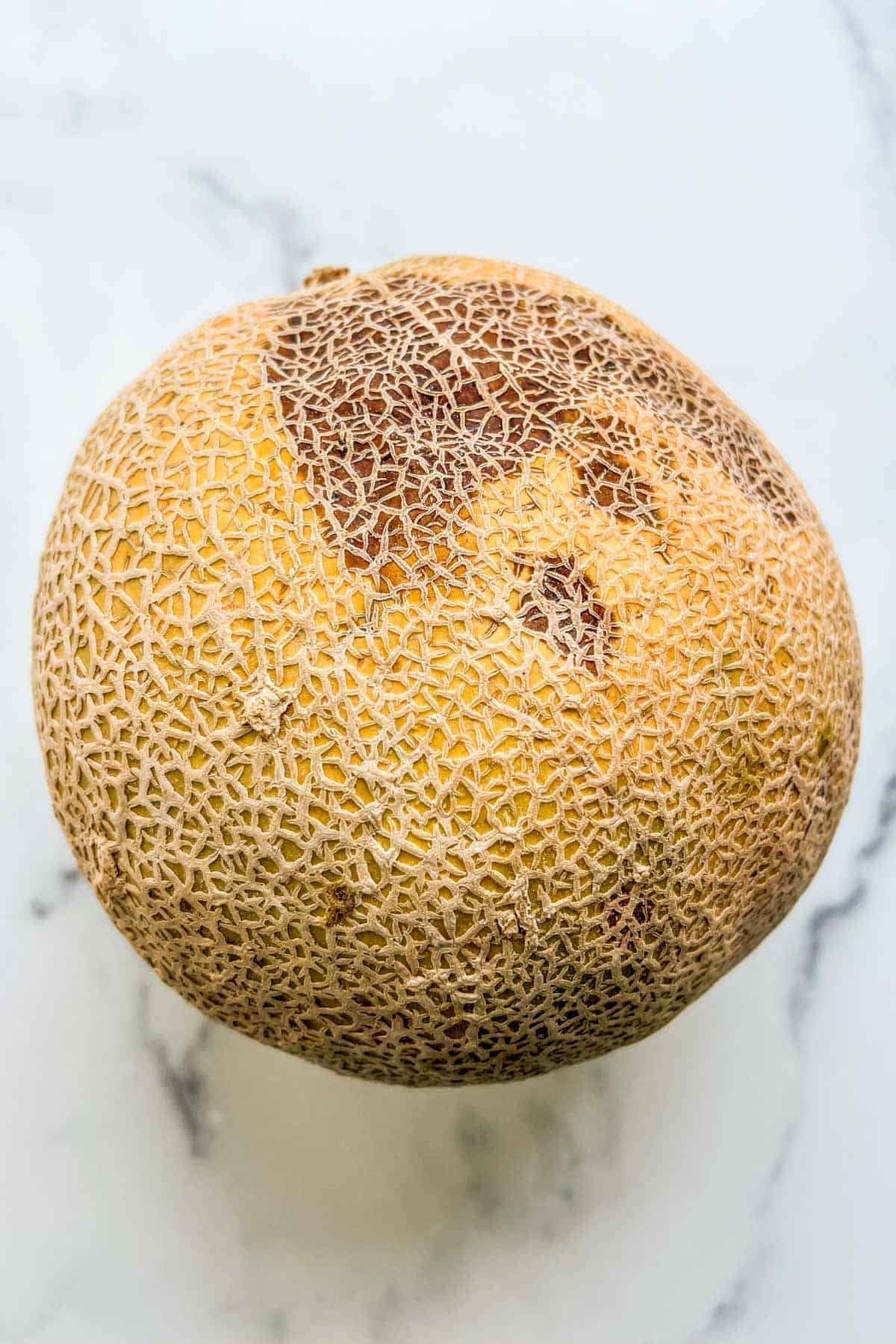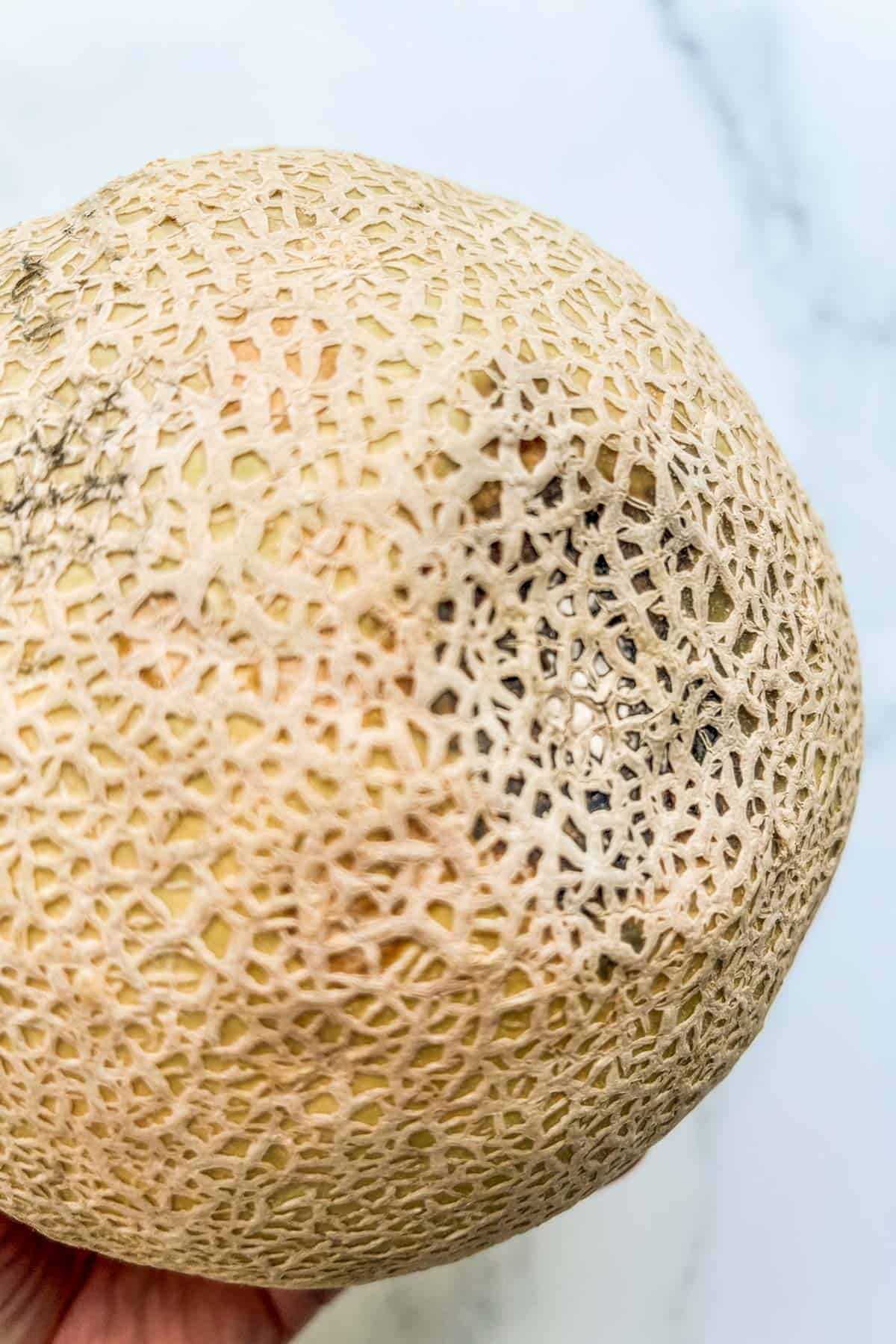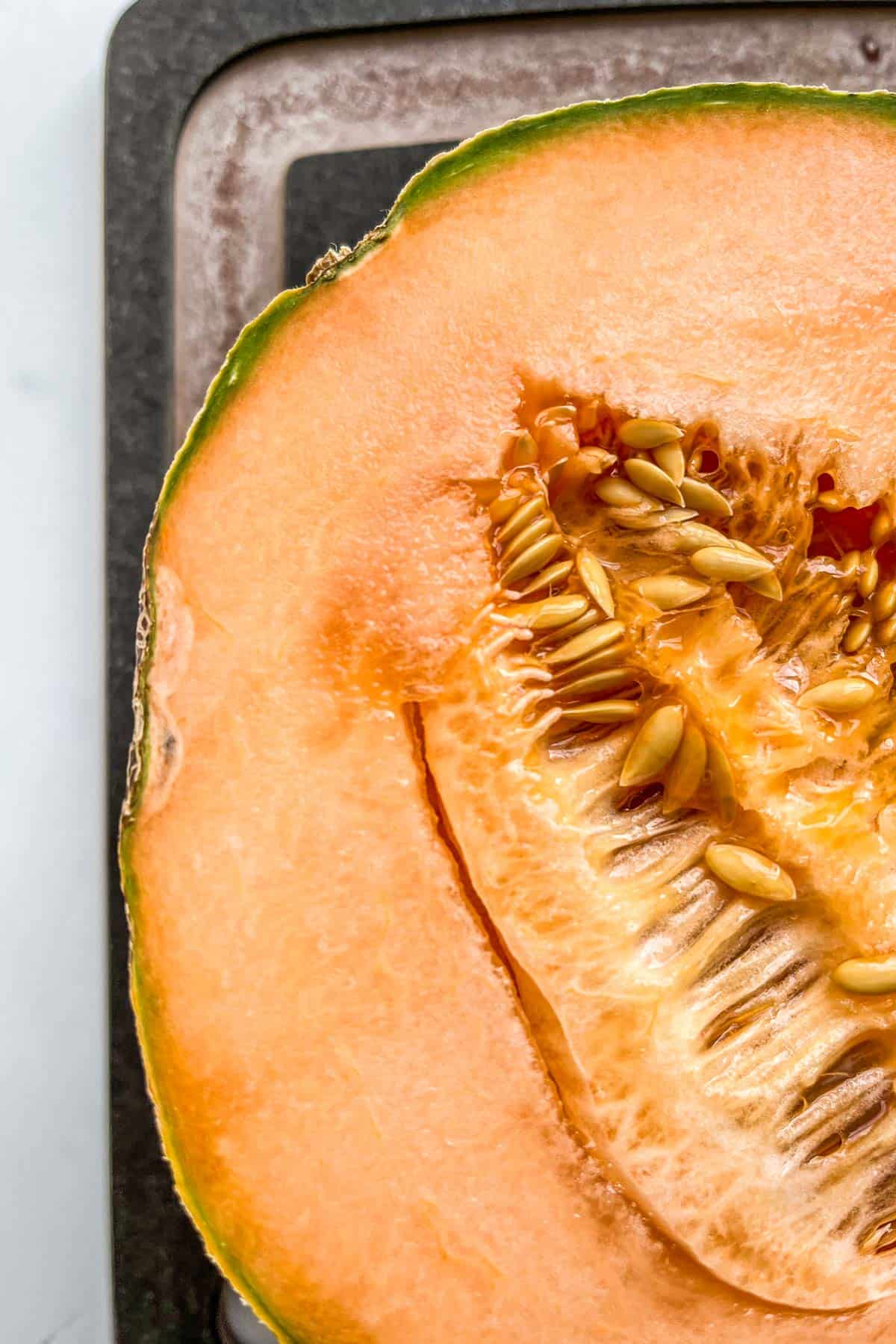Let's tackle a sticky kitchen conundrum - how to tell if cantaloupe has gone bad! Cantaloupe, also called rockmelon and sweet melon, is a large roundish fruit with a thick rind and juicy interior.
A ripe cantaloupe has a fantastic flavor and is a treat to eat, but once melons start rotting the flavor quickly changes. I'll show you the signs for knowing when your fruit is about to spoil or is too old to eat.
We love eating fresh cantaloupe in salads, bread, and desserts. It's a versatile fruit that's usually available year-round but is at its peak from June through August.
Here's what you need to know about identifying rotting cantaloupes, melon storage tips, and some common cantaloupe FAQs.


Signs of Rot in Cantaloupe
Look for these signs to see if your cantaloupe has gone bad.
- Mold - Any fuzzy white or green mold on the cantaloupe means it's too old to eat. Because cantaloupes have a soft interior, mold spreads quickly.
- Soft Spots - If your cantaloupe has any soft or squishy areas that are light brown, dark brown, or black it is rotting. If there is only a small light brown area on your cantaloupe, it may be okay to eat, but dark brown or black spots mean it is too far gone.
- Gouges or Cuts - If a cantaloupe has any cuts, holes, cracks, or gouges in the exterior flesh the interior is likely rotten. Don't buy a cantaloupe like this, but if one you already have cracks, cut it open to check the interior.
- Wrinkled Skin - Cantaloupes that are getting older may start to dry out. The skin may have small wrinkly areas. These are typically okay to eat, but they should be consumed quickly.
- Sliminess - If the interior of the cantaloupe is slimy and the seeds are surrounded by slimy bubbles, the cantaloupe may be too old.
- Smell - Cantaloupes that smell like vinegar should be discarded. A fresh cantaloupe will have a sweet, fruity smell.

The Best Way to Store Cantaloupes
Whole cantaloupe can be kept at room temperature on the counter till fully ripened. If the cantaloupe is fully ripe and smells fruity before being cut, you can store it in the refrigerator for up to 5 days.
Cut cantaloupe should be stored in the refrigerator in an airtight container for up to 3 days. If you have half a cantaloupe, wrap it in plastic wrap and store it in the fridge.

Cantaloupe FAQs
Can I eat a slightly shriveled cantaloupe?
Slightly wrinkly cantaloupe, without mold or interior sliminess, can be okay to eat. It may have a slightly overripe flavor, so use it quickly. You can always blend it and add it to a smoothie.
How long does cantaloupe keep in the fridge?
A whole, uncut cantaloupe (depending on how unripe it was when it was picked) may last for up to 2 weeks in the fridge.
A ripe cantaloupe will last for about 5 days in the refrigerator.
Can you cut the moldy spots off a cantaloupe?
Cantaloupe is a soft fruit, meaning that even though you may only visibly see a small amount of mold it has likely spread much further.
If your cantaloupe has any mold on it, it is best to be safe and discard it or compost it.
Do you need to store cantaloupes in the fridge?
No, a whole cantaloupe can be kept at room temperature - it ripens best on the counter in indirect light.
Cut cantaloupe should be stored in the fridge though.
Are cantaloupes with a bad smell okay to eat?
Cantaloupes with an acrid or sour smell should not be eaten. If it smells like vinegar or anything fermenting discard it!
How long does cut cantaloupe last?
Sliced or chopped cantaloupe should be stored in the refrigerator and is best when consumed within three days.
Can you freeze cantaloupe?
Yes, you can freeze cut cantaloupe. Store it in a freezer-safe container like a ziptop bag and remove any excess air. Freeze for up to 6 months.
The texture of the cantaloupe will change a bit, so I don't recommend using defrosted cantaloupe in a salad, but it works well in smoothies, popsicles, bread, and other pureed type recipes.






Leave a Reply